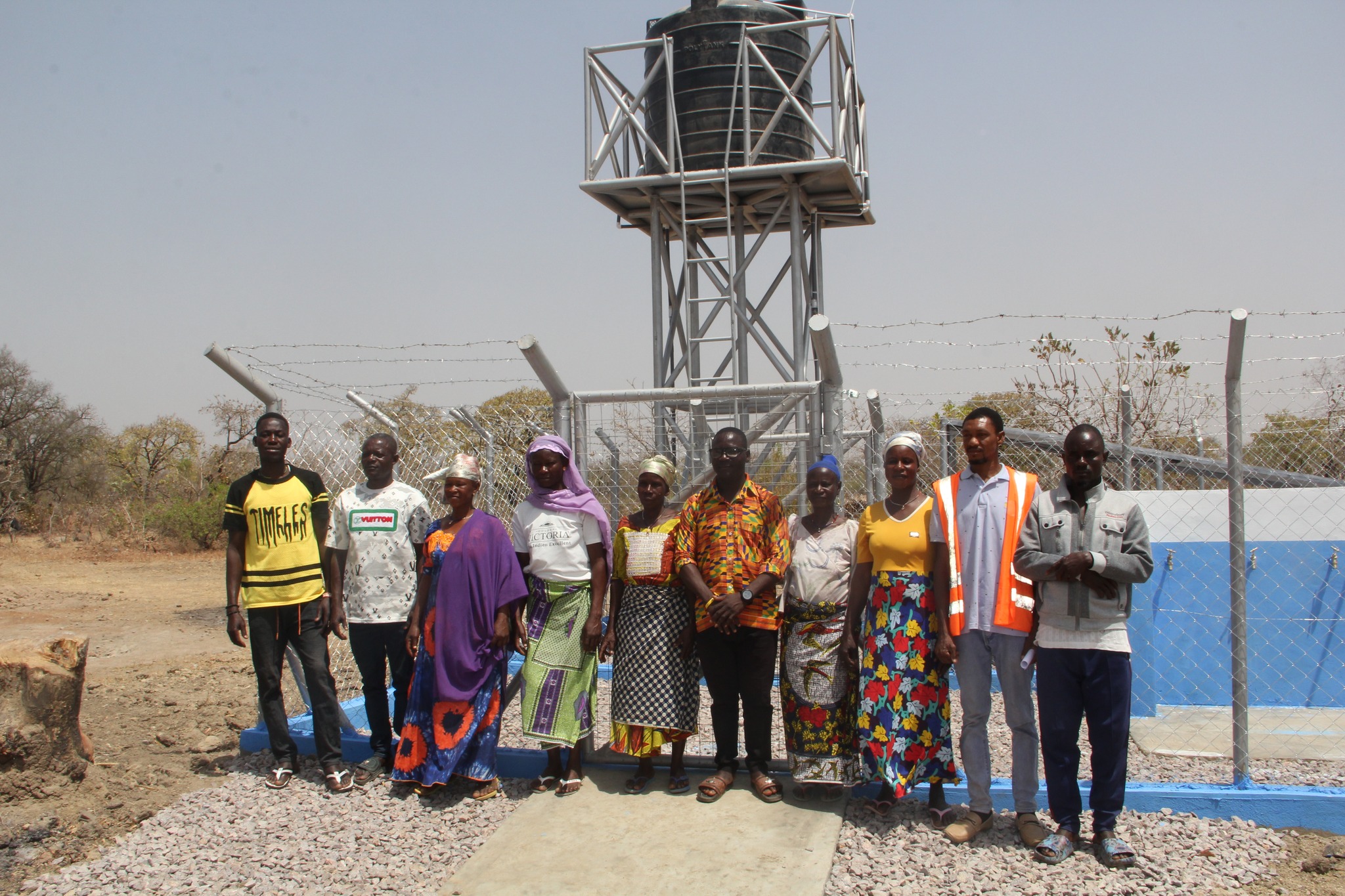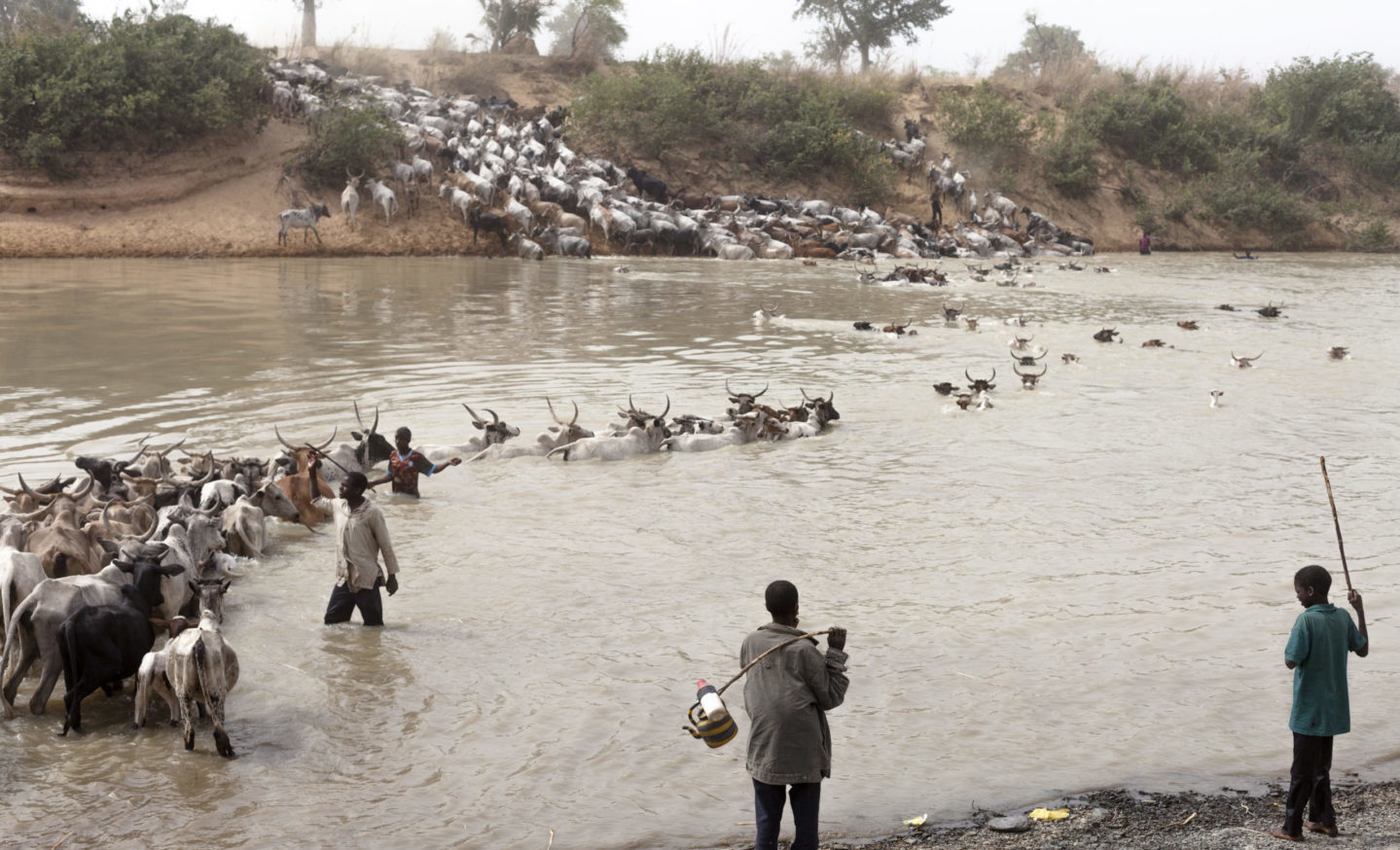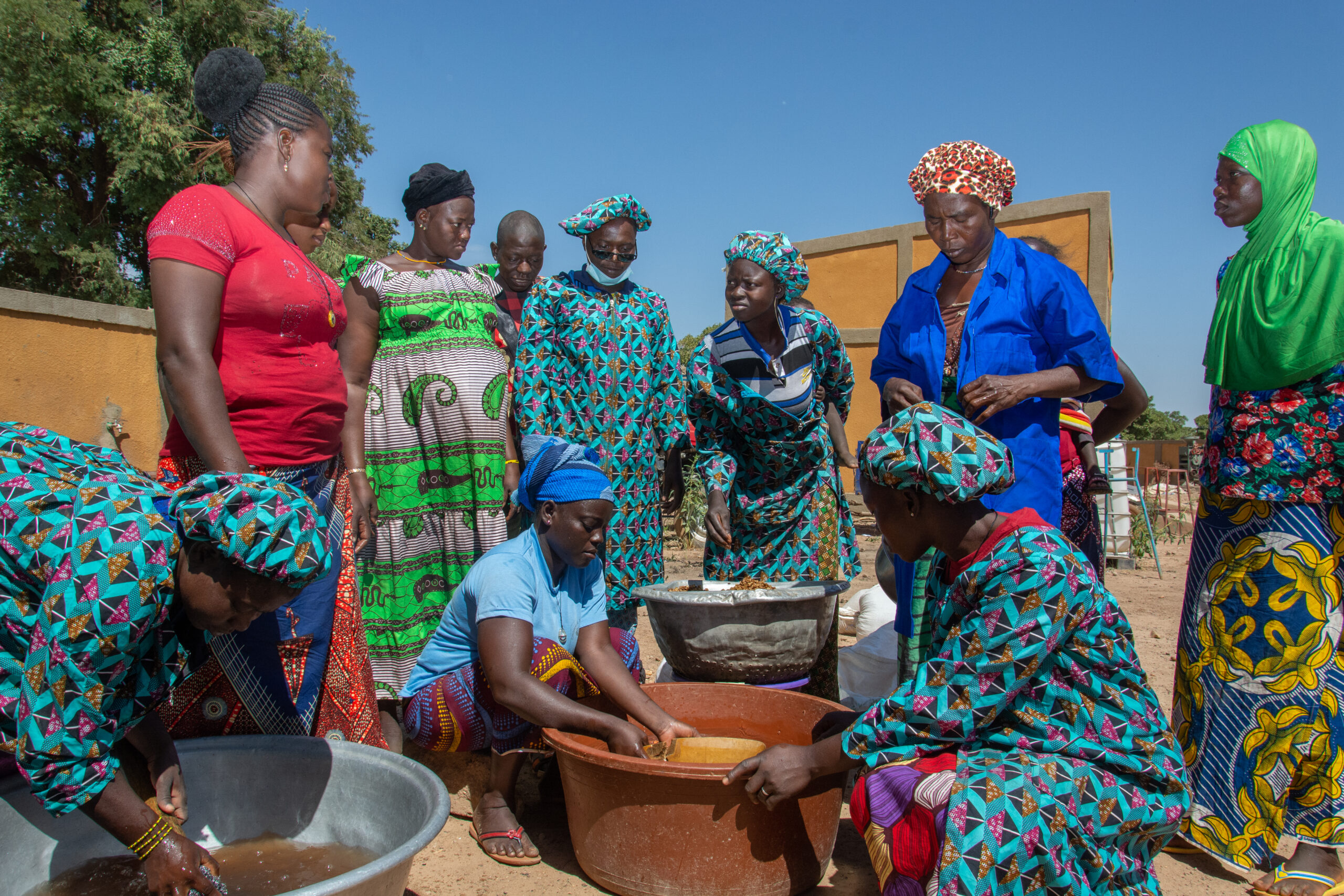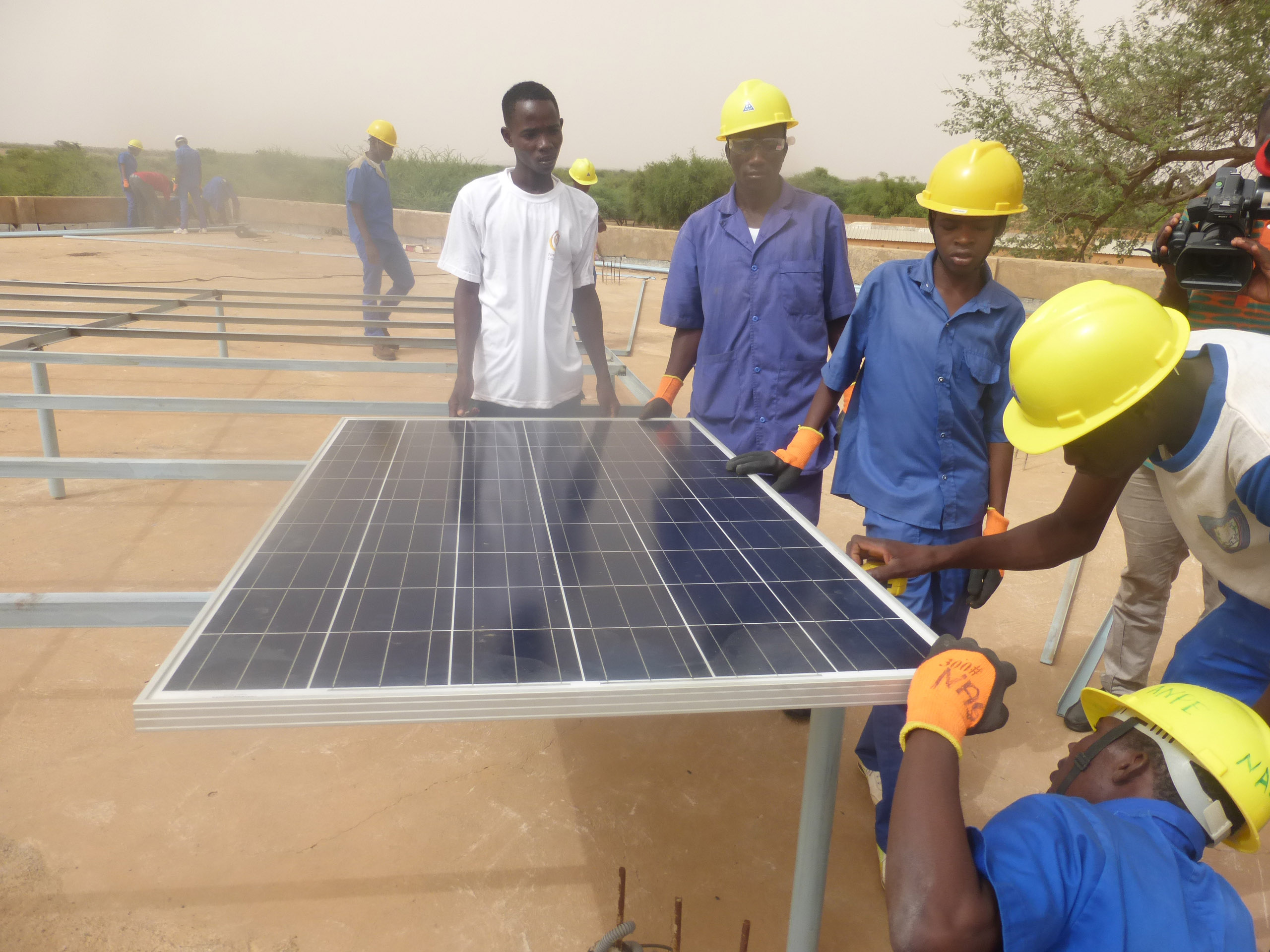In a critical and fast-changing security context, Acting for Life organised a series of three advocacy and awareness-raising events on livestock mobility and the livestock trade in West Africa. The events were held from 18 to 20 February in Lomé, Togo:
- Un atelier de formation et de sensibilisation de journalistes
- A conference
- Une exposition
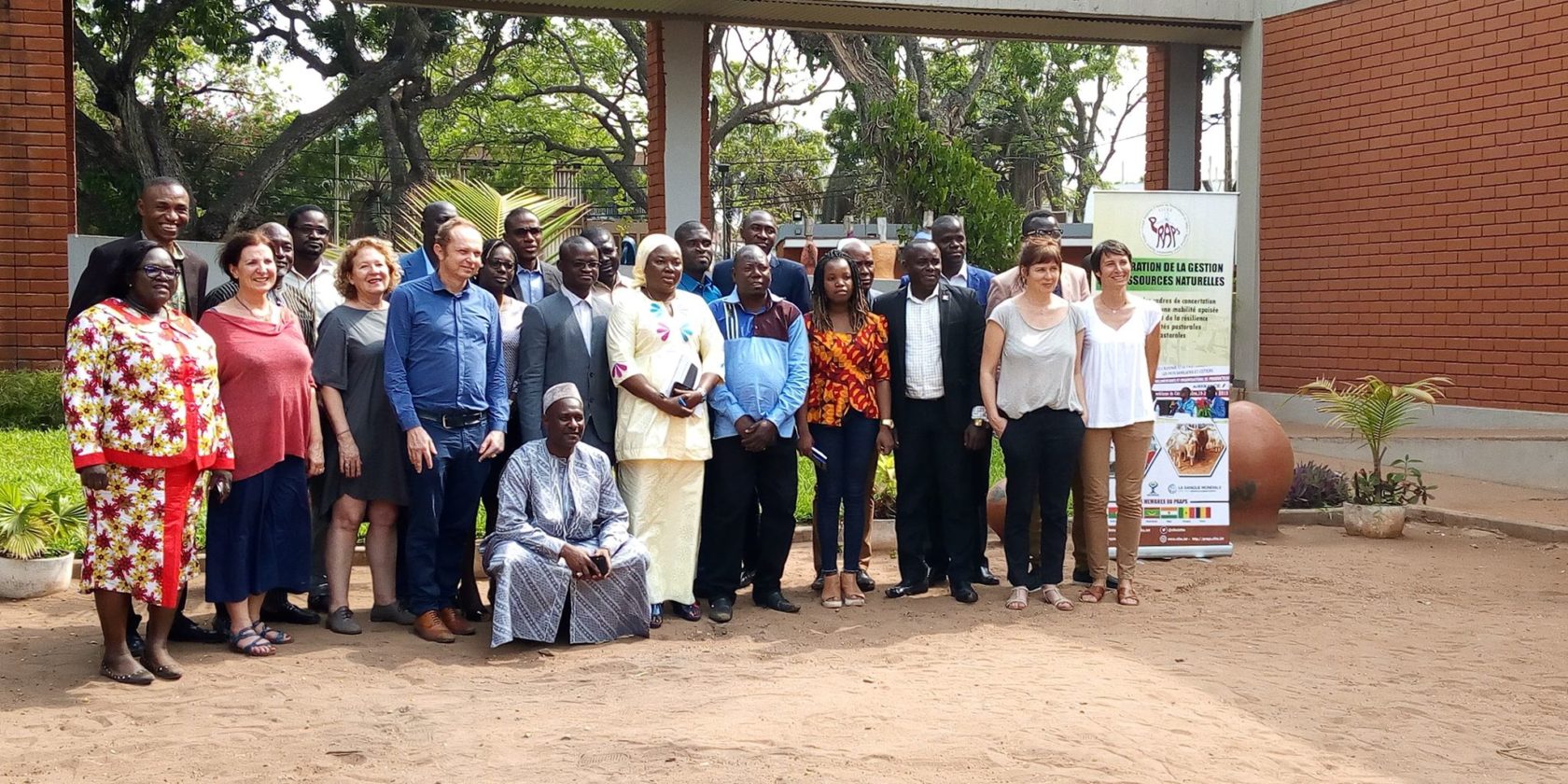
The three-day training workshop brought together some fifteen TV, radio, print and online journalists from ten West African countries to discuss, learn and conduct on-the-ground reporting in order to become more informed about the topic, which was relatively unfamiliar to them.
This workshop aims to help attendees gain a better understanding of pastoralism and appreciate the value of the pastoral system, which contributes to the development of Sahel countries, coastal countries and the entire sub-region.
En parallèle, une conférence sur les enjeux de la mobilité du bétail en Afrique de l’Ouest a été organisée par le Consortium Acting For Life avec des intervenants représentant la diversité des acteurs de la filière bétail : État, ONG nationales et internationales, Agriculteurs, Collectivités Territoriales, Organisation faîtières de pasteurs et éleveurs, Chercheurs et Institutions régionales.
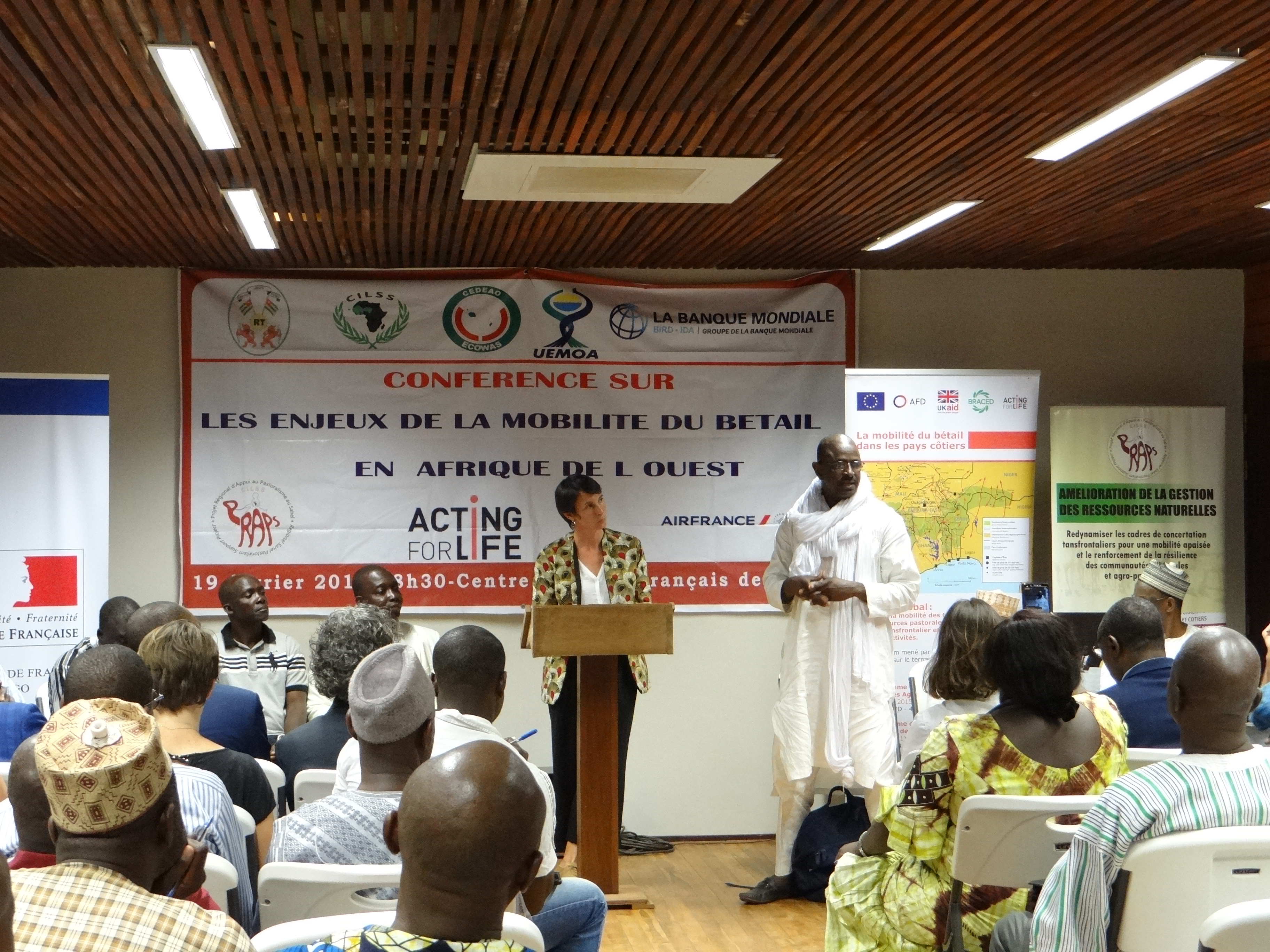
The workshop concluded with a vernissage for the photography exhibition by Gilles Coulon, who followed several groups of livestock farmers on their transhumance routes between Burkina Faso and Togo in 2016. The exhibition gave viewers a unique and artistic glimpse into the herdsman’s way of life.
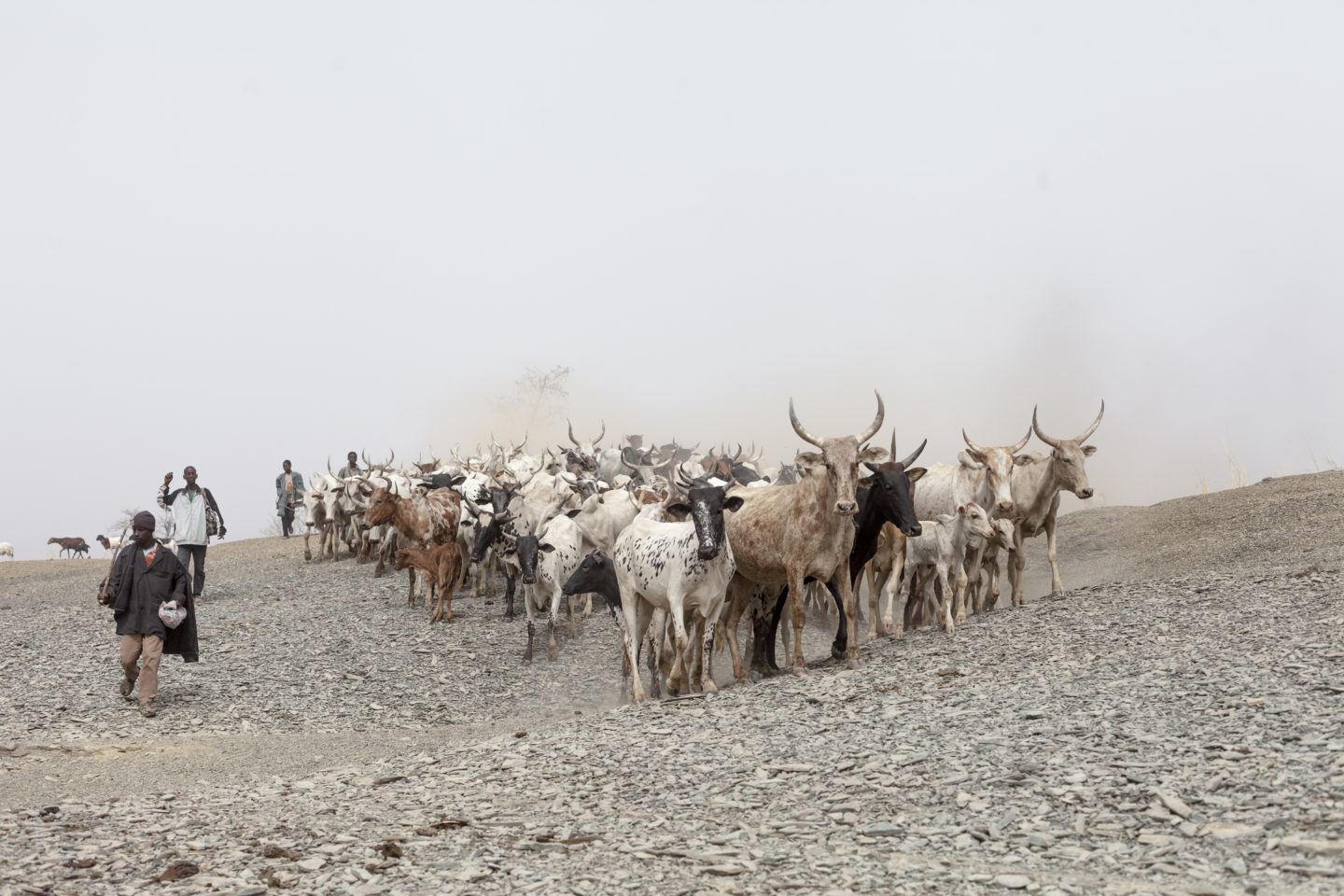
All of these events were organised in partnership with the Regional Project to Support Pastoralism in the Sahel (Projet Régional d’Appui au Pastoralisme au Sahel, or PRAPS) the Permanent Interstate Committee for Drought Control in the Sahel (Comité Permanent Inter-Etats de Lutte contre la Sécheresse dans le Sahel, or CILSS) and the French Institute of Togo. The events were funded through the BRACED and PAMOBARMA projects by the European Union, Agence Française de Développement and the Department for International Development.

